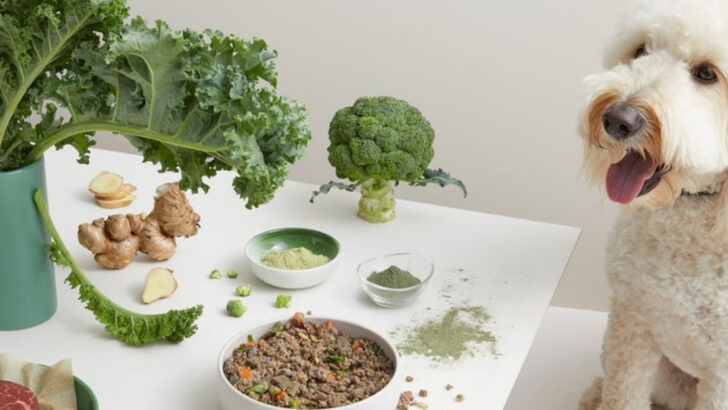Meat is no longer king — and your pet’s dinner bowl is starting to look… different.
Crickets, algae, duckweed, and even black soldier fly larvae are muscling their way into the spotlight. Not as weird science experiments — but as serious contenders in the world of pet nutrition.
Why? Because old-school meat comes with baggage. Allergies. Factory farming. Questionable sourcing. And let’s be honest — not every kibble mystery-meat label fills you with trust.
These 14 alternative protein sources are turning heads and wagging tails for a reason. They’re clean. They’re powerful. And they’re shaking up everything you thought you knew about what pets should be eating.
Cricket Protein
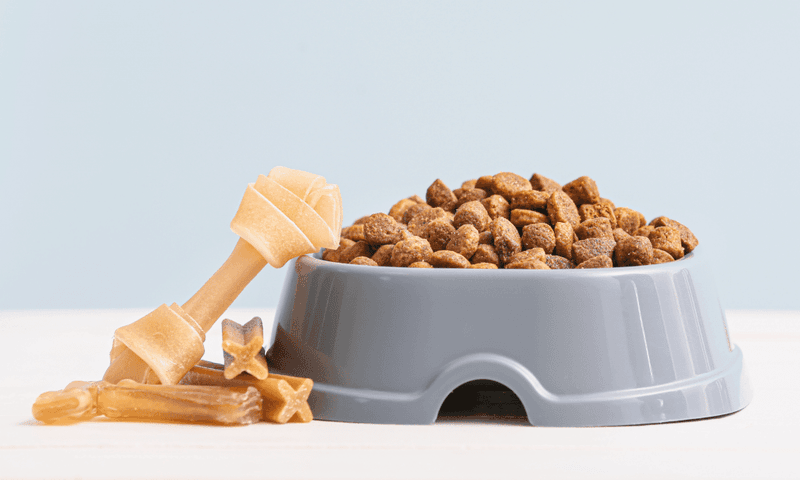
Crickets aren’t just for adventurous snackers anymore. They’re becoming a pivotal protein source in pet nutrition. Rich in essential amino acids, crickets offer a sustainable alternative to traditional meat proteins.
These tiny insects are heralded for their low environmental impact, requiring less land and water than conventional livestock. This makes cricket protein an eco-friendly choice for conscious pet owners.
Moreover, cricket-based products are hypoallergenic, making them suitable for pets with sensitivities. As awareness grows, crickets are hopping into the limelight as a nutritious option for our four-legged friends.
Quinoa

Quinoa is not just a superfood for humans, but also a remarkable protein source for pets. Known for its complete amino acid profile, quinoa supports balanced nutrition.
This ancient grain is gaining popularity in pet diets due to its hypoallergenic properties. It offers an excellent alternative for pets with grain sensitivities or allergies.
Moreover, quinoa’s rich fiber content aids digestive health, providing a holistic nutritional boost. Its versatile nature makes it an easy addition to various pet food formulations, expanding dietary options for our furry companions.
Insect Meal
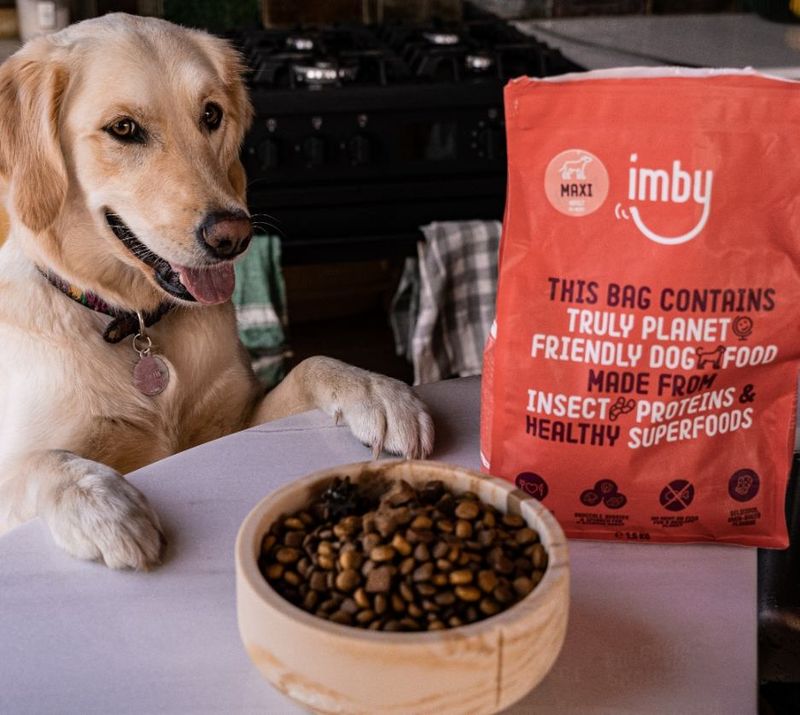
Insects are crawling their way into the pet food industry as a novel protein source. High in protein and essential nutrients, insect meals offer a sustainable alternative to traditional meats.
With less demand on environmental resources, insect farming is an eco-friendly solution to meet growing protein needs. This innovative approach helps reduce the carbon footprint of pet food production.
Insect meals are also highly digestible, making them ideal for pets with food sensitivities. As awareness grows, insects are becoming a staple in sustainable pet nutrition.
Algae Protein
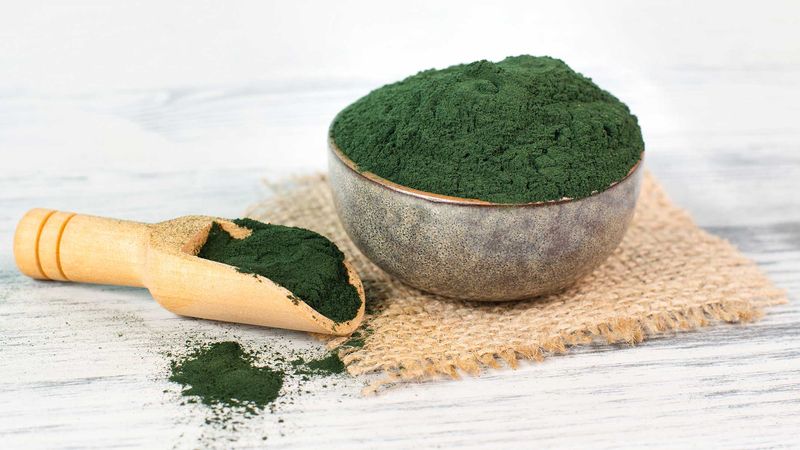
Algae protein is making waves in the pet food industry. Packed with essential nutrients and omega-3 fatty acids, it provides a complete and balanced diet for pets.
Algae farming requires minimal resources, positioning it as a sustainable alternative to traditional protein sources. Its rapid growth rate and high yield make it an environmentally conscious choice.
For pets, algae protein offers numerous health benefits, including improved skin and coat condition. It’s particularly beneficial for pets with fish allergies, providing a plant-based omega-3 source.
Duckweed
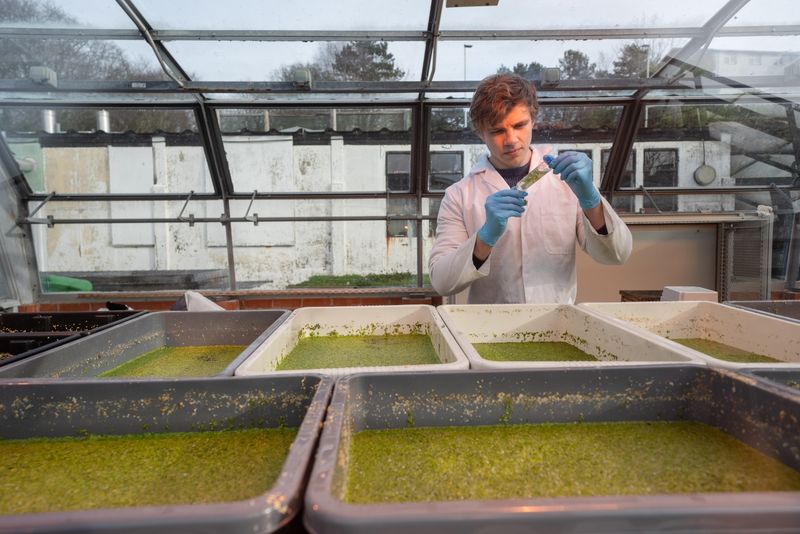
Duckweed might be tiny, but it’s packed with protein! This aquatic plant is emerging as a powerful alternative protein source in pet nutrition.
Known for its rapid growth and high protein content, duckweed offers an eco-friendly solution for sustainable pet diets. It doesn’t compete with traditional crops for arable land.
Duckweed is rich in amino acids and antioxidants, supporting overall pet health. Its nutritional profile makes it a viable option for formulating balanced, plant-based pet foods.
Hemp Protein
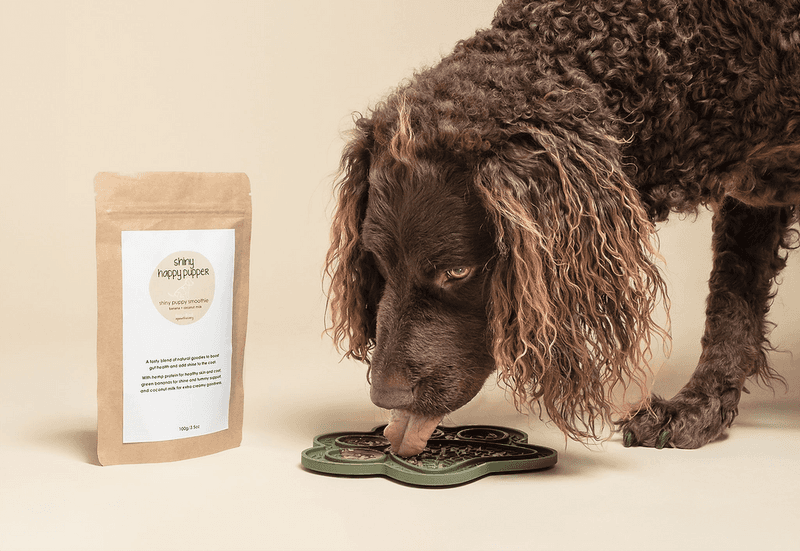
Hemp protein is gaining recognition as a versatile protein source for pets. Derived from hemp seeds, it’s rich in essential amino acids and fiber.
This plant-based protein is not only nutritious but also sustainable, requiring minimal resources for cultivation. Hemp protein supports a healthy digestive system and maintains lean muscle mass in pets.
Additionally, hemp is hypoallergenic, making it suitable for pets with dietary sensitivities. Its balanced nutrient profile supports overall well-being, making it a popular choice among pet owners seeking eco-friendly options.
Pea Protein
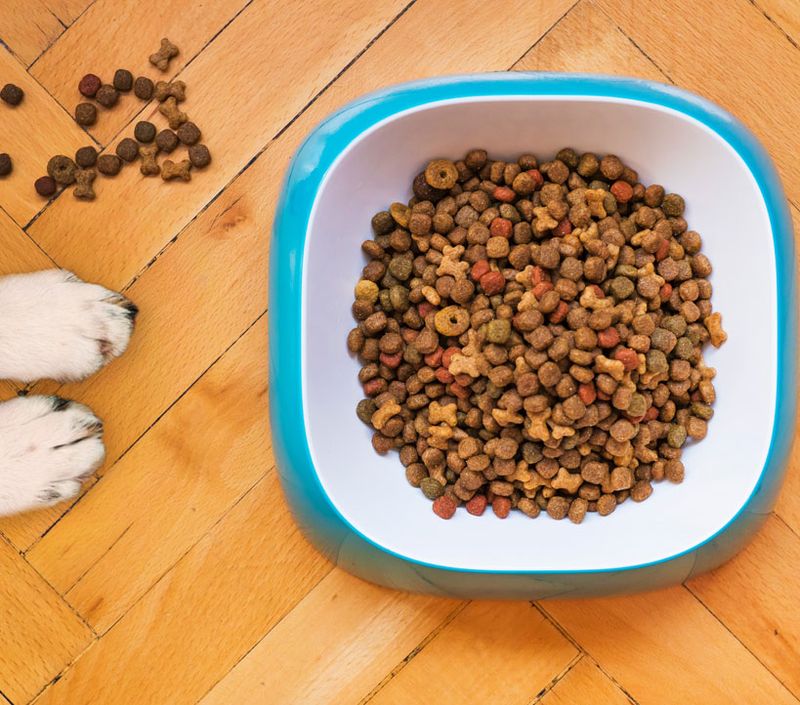
Pea protein is proving to be a viable alternative in pet nutrition. Extracted from yellow peas, it provides a rich source of essential amino acids.
This plant-based protein is not only hypoallergenic but also easy on the environment, requiring less water and fertilizer compared to traditional crops. Pet foods incorporating pea protein support muscle development and maintenance.
Pea protein’s versatility makes it a staple in many pet food formulations, offering a nutritious option for pets with dietary restrictions. Its acceptance in the pet food market is growing rapidly.
Chia Seeds

Tiny but mighty, chia seeds are becoming a popular protein source in pet nutrition. Rich in omega-3 fatty acids and fiber, they offer a host of health benefits.
Chia seeds are known for their ability to absorb water, creating a gel-like consistency that aids digestion. This makes them particularly beneficial for pets with digestive issues.
Incorporating chia seeds into pet diets supports healthy skin, coat, and joint health. Their versatile use in pet food formulations makes them an attractive option for enhancing nutrition.
Pumpkin Seeds
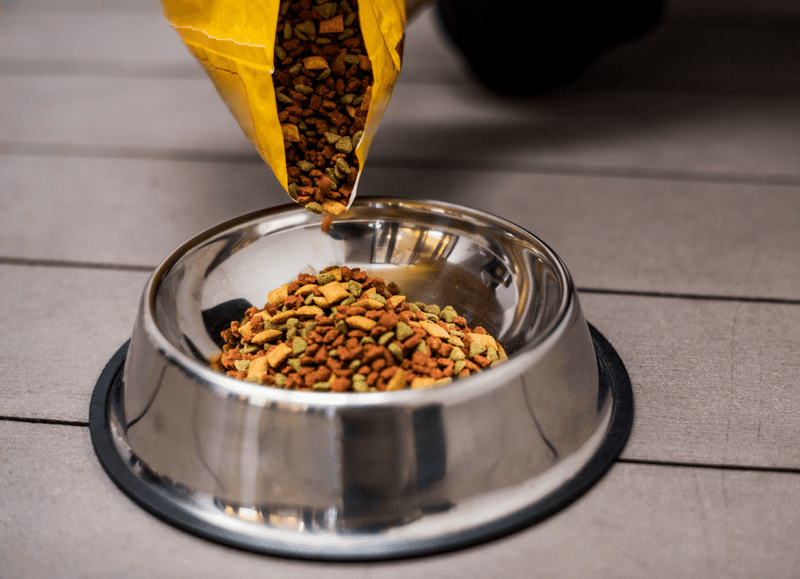
Pumpkin seeds are more than just a seasonal treat. They’re a powerhouse of nutrition for pets, offering essential fatty acids and protein.
These seeds are packed with nutrients that support urinary health and regulate digestive function. Their natural anti-inflammatory properties also benefit pets with joint issues.
Adding pumpkin seeds to pet diets can enhance overall health and wellness. Their crunchy texture adds variety to pet foods, making them an enjoyable addition to meals.
Fava Beans
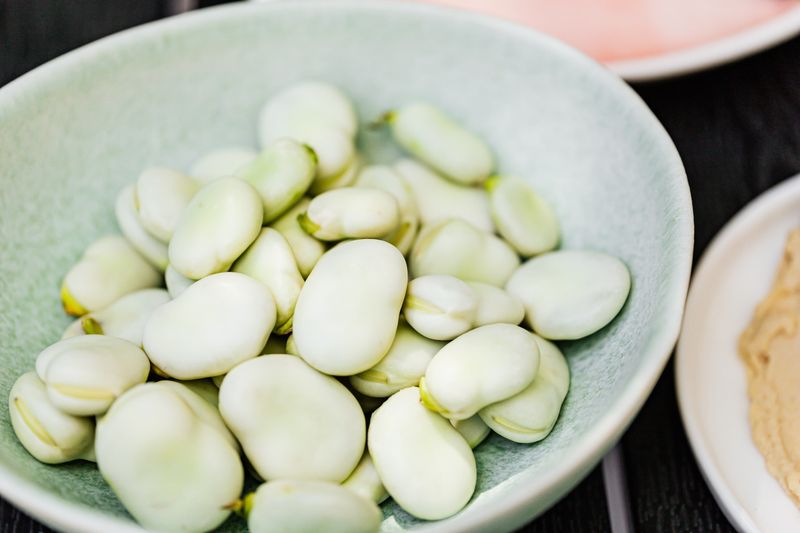
Fava beans are stepping up as a protein-rich ingredient in pet nutrition. They offer a plant-based alternative that is high in protein and fiber.
These beans are beneficial for maintaining healthy blood sugar levels and supporting digestive health. Their inclusion in pet foods caters to pets with specific dietary needs.
Fava beans’ unique nutrient profile makes them an exciting addition to pet diets, providing variety and essential nutrients for a balanced meal.
Lentils
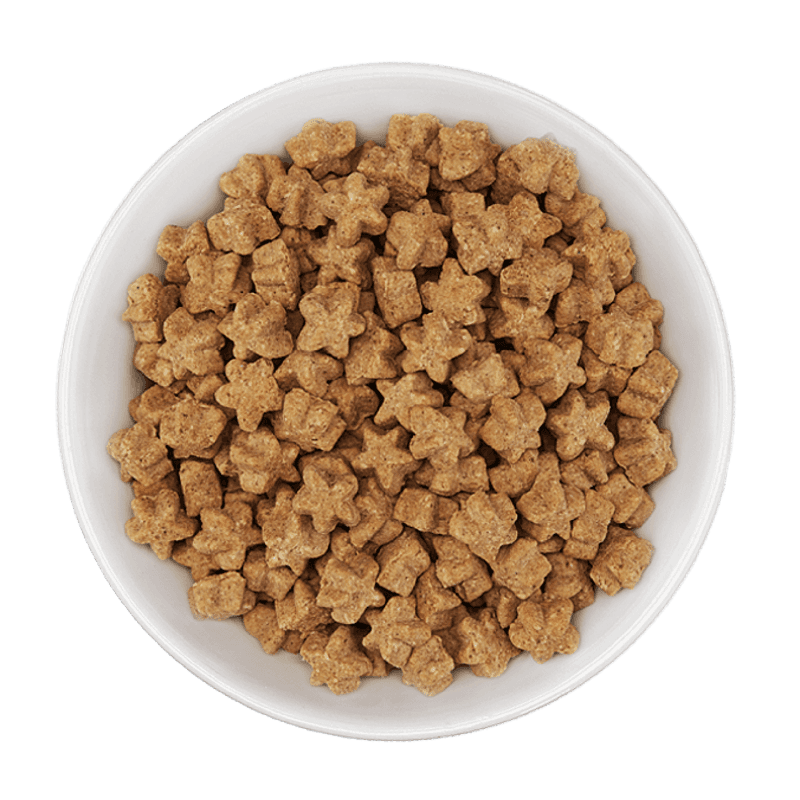
Lentils are a staple in many diets, and now they’re making strides in pet nutrition. Rich in protein and fiber, they offer a nutritious alternative to meat-based proteins.
Their low-fat content and high nutrient density support overall pet health, including healthy digestion and weight management.
Lentils are easy to incorporate into pet foods, making them a versatile option for balanced nutrition. Their growing popularity reflects a shift towards more plant-based options in pet diets.
Chickpeas
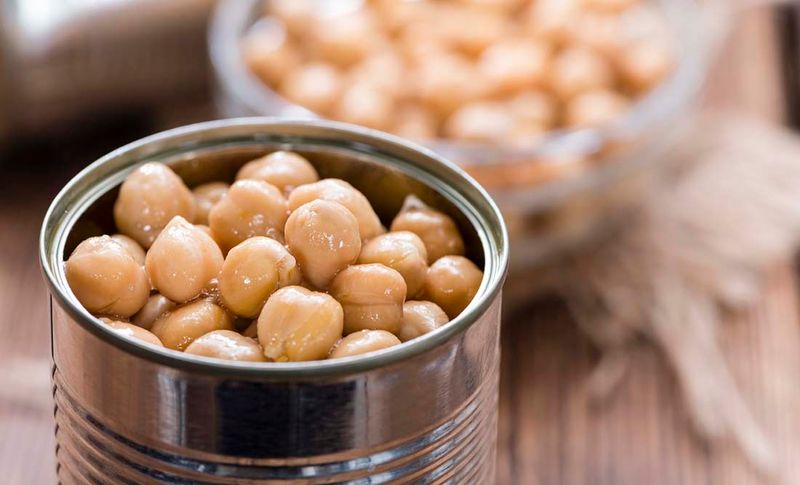
Chickpeas, known for their robust nutritional profile, are becoming a staple in pet nutrition. High in protein and fiber, they offer a plant-based alternative to animal proteins.
These legumes aid in digestion and provide lasting energy, making them a healthy addition to pet diets. Their versatility allows for easy incorporation into various pet food products.
Chickpeas support overall health and wellness, contributing to a balanced diet for pets. Their inclusion signifies a growing trend towards more plant-based protein options in pet nutrition.
Sunflower Seeds
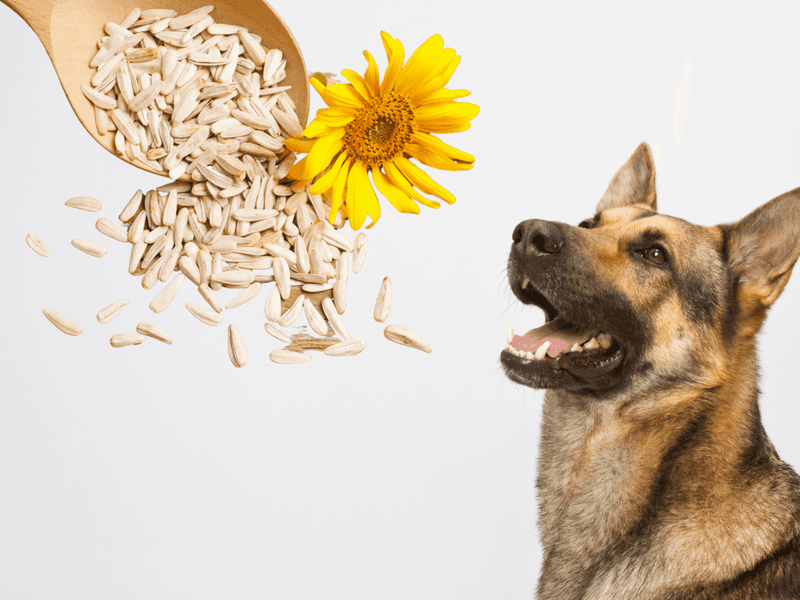
Sunflower seeds are taking root as a nutritious addition to pet diets. Packed with protein and healthy fats, they support skin and coat health.
These seeds are rich in vitamins and minerals, promoting overall wellness and vitality in pets. Their high antioxidant content also aids in reducing inflammation.
Incorporating sunflower seeds into pet foods can enhance flavor and nutritional value, offering pet owners an alternative protein source that is both delicious and beneficial.
Spirulina

Spirulina is more than just a superfood for humans; it’s making waves in pet nutrition too. This blue-green algae is rich in protein, vitamins, and antioxidants.
Spirulina supports immune health and can improve skin and coat condition, making it a valuable addition to pet diets. Its nutrient-dense profile aids in detoxification and overall vitality.
The inclusion of spirulina in pet foods reflects a trend towards incorporating more nutrient-rich, plant-based ingredients into pet diets. It’s a powerful supplement for enhancing pet health.

